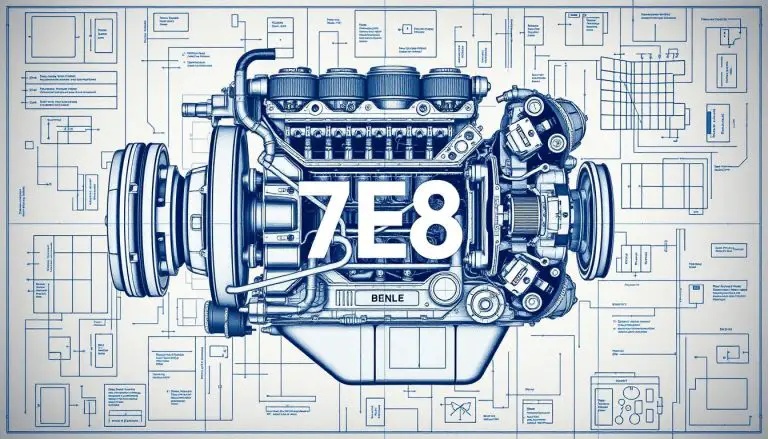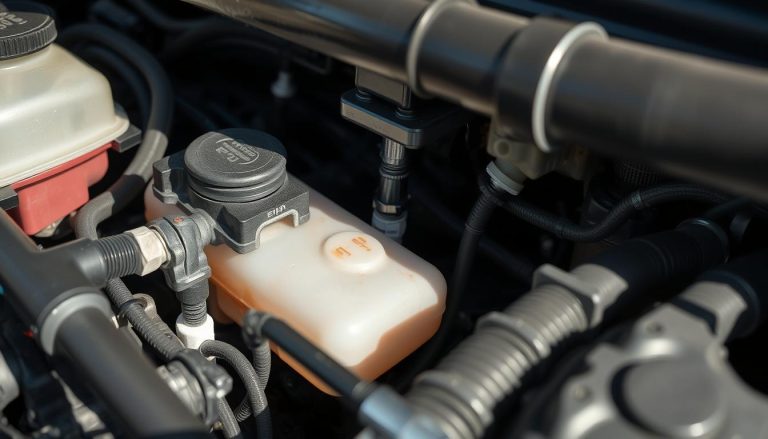When your check engine light flickers on, among the myriad of codes that could pop up is the P0248 code, which points to an issue with your turbocharger or supercharger wastegate actuator. You might be wondering what this all means and how serious it is for your vehicle.
Whether you’re an automotive novice or a seasoned enthusiast, understanding this code can save you time, money, and headaches down the road. So let’s dive into everything you need to know about the P0248 code: its causes, symptoms, diagnostic steps, potential fixes—and ultimately how you can keep those turbocharged dreams alive!
What does the P0248 code mean?
The P0248 code is an OBD-II trouble code that indicates a problem with the turbocharger or supercharger wastegate actuator. Specifically, it signifies that this component isn’t functioning within its specified range or performance parameters.
The wastegate actuator plays a critical role in managing boost pressure. It controls how much exhaust gas bypasses the turbine, directly influencing engine power and efficiency. When the actuator fails or sends incorrect signals to the engine control unit (ECU), you’ll encounter this error code.
This issue can lead to various performance problems, including reduced acceleration and poor fuel economy. Addressing it promptly is essential for maintaining optimal vehicle function and avoiding further complications down the line.
What parts can be affected by P0248 code ?
The P0248 code primarily targets components associated with the turbocharger or supercharger system. The wastegate actuator is the main player here; it regulates boost pressure by controlling exhaust flow to the turbine.
When this actuator malfunctions, it can impact several related parts. For instance, a faulty wastegate may cause excessive boost or insufficient power delivery, leading to strain on the entire forced induction system.
Additionally, sensors such as the MAP (Manifold Absolute Pressure) and MAF (Mass Air Flow) may be affected since they rely on proper airflow measurements. Their readings could skew due to improper engine dynamics instigated by a malfunctioning wastegate.
Hoses and electrical connections involved in these systems can also suffer from wear or damage over time. It’s crucial for vehicle owners to monitor these components closely when faced with a P0248 code for optimal engine performance.
What are the possible causes of a P0248 code?
The P0248 code often arises from several underlying issues. One common cause is a malfunctioning wastegate actuator, which can fail to regulate boost pressure effectively.
Another possible culprit could be damaged wiring or connectors leading to the actuator. Corroded connections might disrupt communication between the components.
Vacuum leaks in hoses connected to the turbocharger can also trigger this code. When there’s insufficient vacuum supply, it impacts performance and may lead to erroneous readings.
Additionally, a faulty turbocharger itself can contribute to these problems. If the turbo isn’t functioning as intended, it affects overall engine efficiency.
Software glitches within the engine control unit (ECU) might play a role in setting off this trouble code. Regular updates and diagnostics are essential for optimal vehicle performance and preventing such issues from recurring.
What are the common symptoms of a P0248 code?
When the P0248 code triggers, your vehicle may exhibit specific symptoms that can help pinpoint the issue. One of the first signs is a noticeable decrease in engine performance. You might find yourself struggling to accelerate as usual.
Another symptom could be unusual sounds coming from under the hood. Whistling or hissing noises might indicate problems with the turbocharger or supercharger system, specifically related to wastegate operation.
You may also experience an illuminated check engine light on your dashboard. This warning signals a problem that needs immediate attention.
In some cases, you might notice fluctuating boost pressure readings while monitoring live data via an OBD-II scanner. These fluctuations often correlate with issues in wastegate actuator control.
Poor fuel economy can arise due to inefficient turbocharging or supercharging processes impacted by this code, leading to increased emissions and wasted fuel resources.
What are the diagnostic steps for a P0248 code?
Diagnosing a P0248 code involves a systematic approach. Start by connecting an OBD-II scanner to the vehicle’s diagnostic port. This tool will read the stored codes and provide valuable insights.
Next, check for related trouble codes. Often, multiple issues can arise simultaneously. It’s essential to address all relevant codes during diagnosis.
Inspect the turbocharger or supercharger system for physical damage or leaks. Pay close attention to hoses and connections since they can affect performance.
Using a multimeter, test the wastegate actuator’s resistance and voltage supply while monitoring its operation in real-time. This step will help determine if it’s functioning correctly.
Also, examine electrical connectors for corrosion or loose wires that may disrupt signals to the actuator. These simple visual checks can save time and effort later in repairs.
Consult manufacturer specifications for any particular requirements unique to your vehicle model while running these diagnostics. This ensures comprehensive coverage of possible failure points.
How serious Is the P0248 Code? Can I continue driving with the P0248 code?
The P0248 code signals an issue with the turbocharger or supercharger wastegate actuator. This can affect your vehicle’s performance and efficiency.
Driving with a P0248 code isn’t advisable. The problem could lead to reduced power, poor fuel economy, or even engine damage if left unchecked.
If you notice a decrease in acceleration or hear unusual noises from the engine bay, it’s best to address the warning promptly. Ignoring this code may escalate repairs down the line.
Your car might still run but at a compromised level. Regular checks and diagnostics are crucial for maintaining optimal performance and safety on the road. Taking action sooner rather than later can save time and money in extensive repairs later on.
What are the repair solutions for a P0248 – Turbocharger/Supercharger Wastegate Actuator B Range/Performance ?
Repairing the P0248 code requires a thorough approach. Start by inspecting the wiring related to the wastegate actuator. Look for frayed wires or loose connections that could disrupt functionality.
If the wiring checks out, test the actuator itself. A malfunctioning actuator can be replaced, restoring performance to your turbocharger or supercharger system.
Additionally, it might be necessary to examine related components like boost control solenoids and vacuum lines. Any blockages or leaks here can contribute to performance issues.
After repairs are made, clear any diagnostic trouble codes using an OBD-II scanner and take your vehicle for a test drive. Monitor how it performs under various conditions to ensure everything is functioning correctly again.
In some cases, software updates may also address issues linked with this code. Consult with a dealership or qualified mechanic if you suspect this step is necessary for resolution.
What other codes may be related to P0248?
When troubleshooting the P0248 code, several related trouble codes may surface. These can provide additional insights into your vehicle’s performance issues.
Commonly linked codes include P0234, which indicates a turbocharger overboost condition. This suggests that the wastegate actuator might not be functioning correctly, causing excessive pressure buildup in the intake manifold.
Another relevant code is P0299, signaling a turbocharger underboost situation. This could mean that there isn’t enough boost pressure from the turbocharger due to actuator malfunction or other system faults.
Codes like P0045 and P0046 also pertain to turbo/supercharger control circuits and can indicate problems with wiring or connections within these systems. Recognizing these associated codes helps pinpoint underlying issues more effectively for accurate repairs and diagnostics.
How much does it cost to diagnose and repair a P0248 code?
The cost to diagnose a P0248 code can vary widely. Typically, you might expect to pay between $100 and $150 for a professional diagnostic. This fee often covers the scanning of your vehicle’s onboard computer and an initial assessment.
Once the issue is identified, repair costs can escalate depending on what components need attention. If it’s just a faulty sensor or wiring issue, repairs may range from $50 to $300.
However, if the turbocharger itself needs replacement or significant repairs are required in the wastegate system, you could be looking at expenses from $500 up to over $1,500.
Always consider obtaining multiple quotes from different mechanics before proceeding with any repairs. It’s crucial that you choose a reputable service provider who understands your specific vehicle make and model.
How long does it take to diagnose and repair code P0248?
The time required to diagnose and repair the P0248 code can vary significantly. Typically, a skilled mechanic may spend one to two hours on diagnosis alone. This includes running tests and checking related components.
Repairing the issue often depends on what specific problem is identified. If it’s a simple fix, like replacing a faulty sensor or wire, it might take only an hour or less. More complex issues, such as needing to replace the turbocharger or wastegate actuator, could extend the timeframe considerably.
In some cases, waiting for parts can also add delays. Mechanics usually provide estimates after their initial assessment. Being proactive about regular maintenance can help reduce these diagnostic times in the future while ensuring better performance from your vehicle’s turbocharger system.
Is the P0248 code specific to certain car makes or models?
The P0248 code isn’t confined to a specific make or model. It can appear in various vehicles equipped with turbochargers or superchargers. This includes popular brands like Ford, Chevrolet, Volkswagen, and BMW.
Each manufacturer may have different systems for managing wastegate actuators, leading to variations in how the code manifests. High-performance vehicles are particularly prone to this issue due to their complex boost control systems.
However, while the P0248 code is widespread, it doesn’t mean every car will exhibit the same symptoms. The actual performance impact can differ based on engine design and electronic controls.
Understanding your vehicle’s specifications is crucial when diagnosing this code. Always refer to service manuals tailored for your specific model for more accurate insights into potential causes and fixes related to P0248.
How can I avoid a P0248 code?
Preventing a P0248 code starts with regular maintenance. Schedule routine check-ups for your turbocharger and supercharger systems. These inspections can catch potential problems before they escalate.
Keeping the engine clean is vital. Dirt and debris can affect components like the wastegate actuator, leading to issues down the line.
Use high-quality fuel that meets manufacturer specifications. Poor fuel quality can contribute to performance problems in forced induction systems.
Pay attention to warning lights on your dashboard. If you notice unusual behaviors, address them promptly rather than waiting for a complete breakdown.
Monitor boost levels closely while driving. Abnormal readings could signal underlying issues needing immediate attention.
Educate yourself about your vehicle’s specific requirements regarding maintenance intervals and parts replacements related to forced induction systems. With these proactive steps, you can significantly reduce the chances of encountering a P0248 code in the future.
What happens if you ignore a P0248 code?
Ignoring a P0248 code can lead to several repercussions that may compromise your vehicle’s performance and reliability. When the turbocharger or supercharger wastegate actuator is not functioning correctly, it affects the overall efficiency of your engine. You might notice reduced power, sluggish acceleration, or poor fuel economy as a result.
Over time, neglecting this issue could cause more significant problems. The engine management system may compensate for the faulty actuator by altering other parameters, potentially leading to further damage in related components like the turbocharger itself or even impacting engine longevity.
Additionally, if you continue driving with this code active, it presents risks such as unanticipated stalling or triggering an emergency mode in some vehicles—resulting in limited power until repairs are made. It’s advisable to address any diagnostic trouble codes promptly to maintain optimal vehicle performance and safety on the road. Taking action now can save you money and hassle down the line by preventing extensive repairs associated with unresolved issues stemming from ignoring warning signs like a P0248 code.


